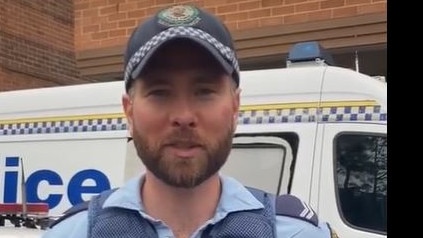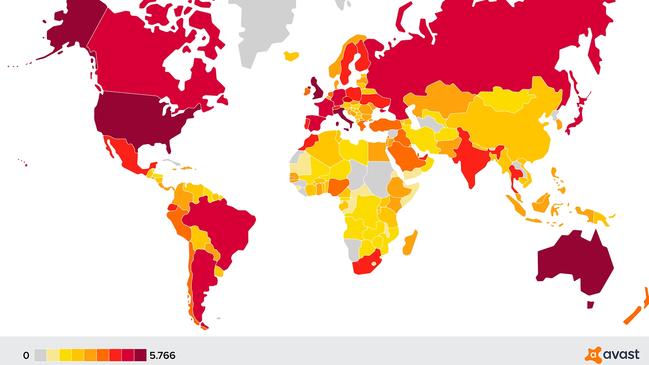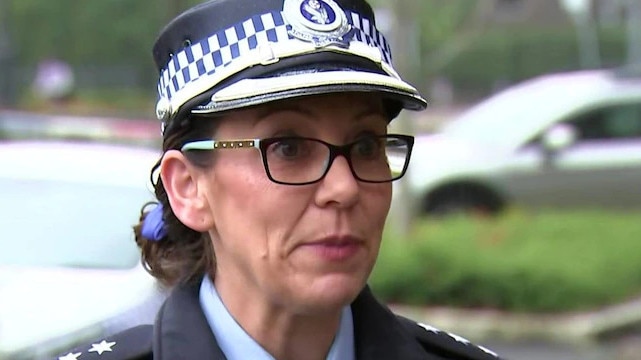NSW Police targeting “sextortion” – growing trend of child sexual exploitation
Children as young as eight are being targeted through “sextortion” – lured into sending naked images and then blackmailed into sending money. Here is advice for parents.

Hills Shire
Don't miss out on the headlines from Hills Shire. Followed categories will be added to My News.
Sydney kids as young as eight years old are becoming the target of ‘sextortion’ incidents online – with a growing number of children blackmailed after sending naked pictures or videos.
The stark reality of sextortion is bearing down on a generation where Snapchat and other social media platforms easily facilitate the sharing of personal images.
Castle Hill Police Senior Constable Ethan West, who is a western Sydney youth officer, detailed an ongoing investigation which say an eight-year-old girl targeted in a sextortion attempt.
“The kids don’t realise the gravity of sending naked images it has become normalised from what they see online,” Constable West said.
Const. West said the child was not targeted for money, but instead had revealing images leaked to other students at her school.
“Our concerns are the mental health effects on the victims,” Constable West said.

He said images or videos spread very quickly, which “causes major effects and ripple into their future”.
“Once it happens, kids often try change schools to get away from it – but it follows them,” Constable West said.
He encourages parents to be mindful of what their kids have access to at a young age.
“Tiktok and Instagram can easily display pornographic imagery or foul language.”

A parent himself, Constable West said it’s easy to become preoccupied, however monitoring what children are watching can prevent normalising the behaviour.
“Sexting has become part of relationships these days, but we want people to understand the risks,” he said.
With the number of cases of sextortion growing, police are now working to educate children around the consequences of sharing photos.
A police initiative “Love Bites” targets Year 10 students, informing them about “healthy relationships” and what is considered normal behaviour in relationships.

Constable West said Police are engaging with young victims of sexual abuse.
“It’s all about staying safe online and building confidence back for the victims. It takes a huge hit,” he said.
Con. West said some schoolchildren use naked images as “power trip” rather than demanding money.
“It’s a scary reality,” he said.
Hornsby Police Detective Inspector Michelle Mathieson said there is a growing number of scammers – often overseas – attempting to extort money posing as “beautiful young women”.
“They target young boys, adding them on social media using fake accounts before asking them to move to another platform and video call,” Insp. Mathieson said.

After luring the children, the predators claim their webcam is “faulty”, before demanding naked images.
Det Insp. Mathieson said the devious scammers may send a fake photo back while sweet talking the children, before saving a naked image from their victim.
Money is often demanded, such as a gift voucher, threatening to leak the images to the victim’s social media friends.

The Daily Telegraph reported several child-sexual abuse cases where police used similar method of posing as younger people to catch adults engaging in online child abuse.
Det Insp. Mathieson said sextortion often occurs overseas which makes catching culprits difficult.
In December last year, the AFP-led Australian Centre to Counter Child Exploitation reported an average of more than 100 reports of sextortion each month in 2022, a “100-fold increase from the past year”.
Despite an increase in case numbers, NSW Police suspect the offending is far higher than what has been reported, with many victims yet to come forward.

Hills Police Command Detective Inspector Chris Laird said sextortion typically targets young boys and his advice is clear: “Don‘t transmit information over the internet that you wouldn’t be comfortable sending to your grandmother,” Insp. Laird said.
Det Insp. Mathieson suggests young people change their social media profiles to “private” and avoid accepting friend requests, even if they have mutual friends.
She said young people fear being caught with nude images.
“We are more interested in catching the adult perpetrators,” she said.
Police encourage young people to block accounts threatening sextortion and to immediately report those involved to police.
“You’re not alone,” she said.
If you suspect you may be talking to someone threatening sextortion, Police advise contacting Crime Stoppers on 1800 333 000 or heading to the Sextortion Help website for more information.




